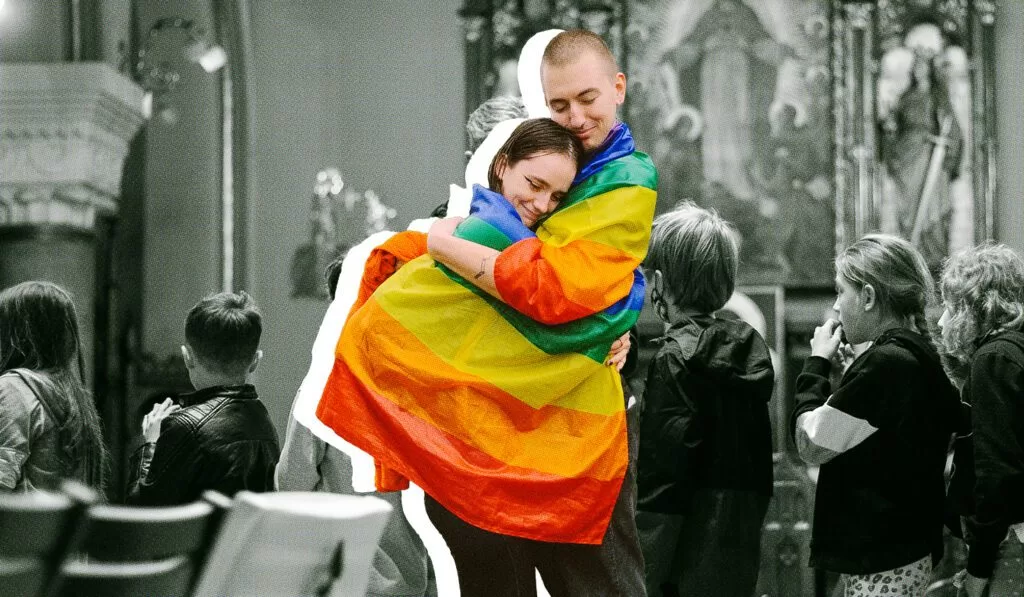“We appealed to their conscience and goodwill,” Wiktoria Baranska, 27, Secretary of the Polish Pride Alliance explains. Living in the major city of Krakow, Wiktoria is among many activists who travel across the country to organise demonstrations, conduct petitions and work with the Polish Pride Alliance, which works with representatives of the EU, and all of Poland’s Pride organisers across 32 cities.
Wiktoria sees the positives of moving forward for the next generation of queer youth. “They have a completely new mindset. They have a difficult history behind them, but they are very proud of themselves. There’s less insecurity and shame compared to people my age. Even 10 years ago it was very different and 10 years from now it will be even better.” Wiktoria returns regularly to Podkarpackie to help with the organisation of Sanok Pride, which will take place again this summer.
Although only four years have passed since the ‘gay-free zones’ appeared, the cultural landscape has changed, leaving a generational gap between those who hid in high school, to those who feel solidarity with a wider community of LGBTQ+ people. What started out as an attack on a seemingly easy target for the government has turned and brought international support, the explosion of grassroots activism and a change of national conversation.
This autumn, Benek will start university in Warsaw where he intends to join the vibrant queer scene of the capital which saw tens of thousands march through the streets during its Equality March in June. In May, activists including the Polish Pride Alliance drafted and sent an open letter to the Polish government signed by the ambassadors of several different countries including the United States and Germany, to pledge support for the LGBTQ+ community.
For Gen Z Polish queer youth, the scars of growing up in the rural east have only illustrated the pain and hurt left by their family and a society that does not want them for who they are. “[This] cycle won’t break if there isn’t someone who [will strike] first,” Marzelina says.
Within her university, she has created the first queer organisation encompassing other queer people from rural communities – including some from Ukraine as well. Something that would have been extremely difficult for her to do just five years ago is happening along with hundreds of other activist efforts throughout Poland.
Now, a little over a year after its first Equality March, Sanok will conduct another one, making this the third Pride event within the Podkarpackie region after its capital of Rzeszov and the town of Krosno. “The march aims to show LGBTQ+ visibility in smaller cities as well. Yes! This is where we are too.” The organisers of Krosno Pride posted on Facebook: “Just two years ago our neighbourhood was one of the so-called ‘LGBT Free Zones’, let’s show that we also have the right to live peacefully in smaller cities like ours.”
Although collective groups such as Sanok Equality March and other LGBTQ+ groups across the country have made large strides in social acceptance within Poland, individual legislative rights still seem to be a far way off. With national elections later this year, some pin their hopes that a change in government might be the sign that Poland is ready to move on from this dark chapter and move toward greater equality.
